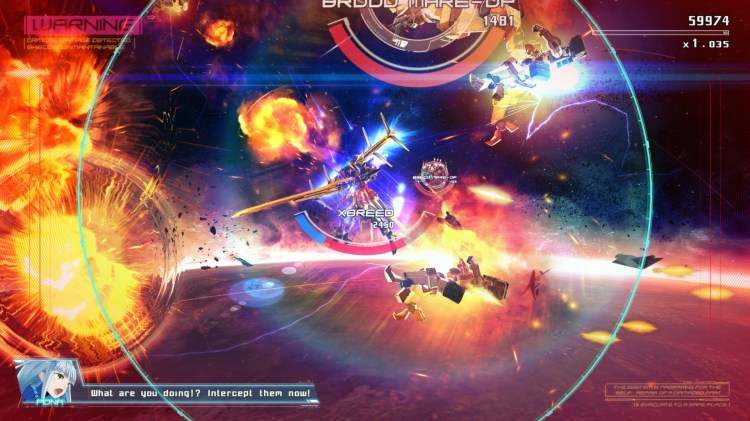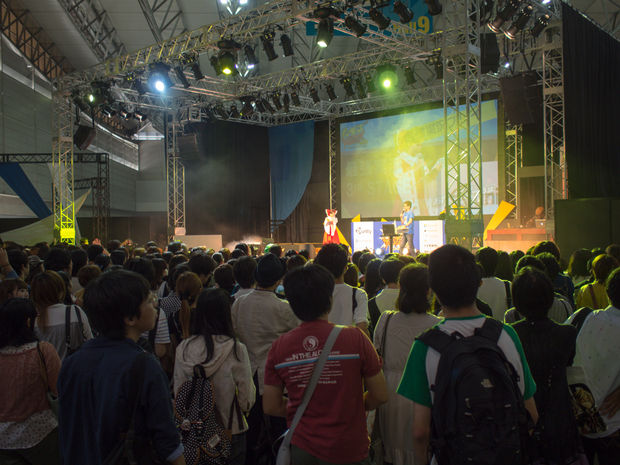Playism wants to bring the wide and varied world of independent games to Japan, but doing so isn’t as easy as you’d think.
In the West it’s much easier to get indie games — for any platform. Popular digital distribution stores such as Microsoft’s Xbox Live and Valve’s Steam are happy to host this growing segment of the $78 billion game business (according to Digi-Capital). The growth is so hot that Sony actively hunts for new indie titles for its PlayStation Network, scouting at indie meetups and the like. But various challenges, including distribution and localization, are roadblocks for independent developers hoping to broaden the reach of their creations. And with the limited size and resources of these studios — with some being as small as a single individual — taking on another territory ends up being too much work, not to mention costing way too much.
Playism is a specialized branch of Osaka, Japan-based game-localization company Active Gaming Media. It’s unique in its mission to publish independent games from all over the world in Japan, and it aims to be an all-in-one solution to do so, with the group handling localization, debugging, distribution, and promotion for its titles. And it also handles the opposite direction, doing the work so that Japanese games can be sold worldwide.
It started out as a PC digital distribution and publishing platform when the company launched in May 2011, putting games out on Steam, GOG, and Humble Bundle as well as its own DRM-free platform, Playism. More recently, it has branched out to consoles such as the PlayStation 4 and Vita, and it has just started to release titles on Nvidia’s Grid streaming service, for play on the Shield line of devices, including the newly announced Shield Android TV console. To date, the Playism site has come to 200 games available.
Japan’s ‘doujin’ scene serves as inspiration
Nayan Ramachandran, the marketing manager at Playism, says that the Japanese fan game doujin scene served as inspiration for the company’s formation.
“Active Gaming Media, our parent company, has been around since 2008, but Playism as a department and as a brand started just four years ago,” Ramachandran told GamesBeat in an interview. “It started originally because we had these disparate departments within the company — localization, creative, marketing — and wanted to bring them together and form a brand. We focused on indie games because the people involved were passionate about the Japanese gaming industry, and saw the local doujin community as a chance to bring Japanese gaming back to prominence.”
It’s hard to get a feel for the size of the Japanese indie scene as it’s made up of so many smaller, unmeasurable subsections.
“It’s too hard to define, because it’s so fractured,” Ramchandran says. “You have the indie scene, the doujin scene, the flash game scene, the small developer scene, etc. They’re all of varying sizes, but none of them really interact with each other.”
Playism is still a small team — now with eight members — but it has managed to release a number of popular games, such as La-Mulana, Botanicula, To the Moon, and Dear Esther, on its platform. Localization is the core of Playism’s business, but Ramchandran says that the company handles basically “everything the developers can’t do on their own,” including marketing, art asset creation, and certification for Japan’s entertainment ratings board, CERO.
It’s a unique service that has the creator of smaller game makers in mind. Playism hopes to help these creators get their games out in front of more people.
“We’re serving the game maker that wants to reach a wider audience, but doesn’t have the means on their own to reach that audience,” Ramchandran said. “There are quite a few game creators out there that believe their game is perfect for a market they can’t hope to reach. We want to make sure their games get to that market, and get in front of the right gamers.”
Playism is also serving gamers in an interesting way, offering up something a bit different from what’s already out there, Ramchandran said. As an example, it offered popular Western indie release Papers, Please and Neverending Nightmares to the Japanese audience, while localizing and distributing Japanese sleeper hits Astebreed and La-Mulana for our shores.
“I want to say we serve every gamer out there, but I think it’s more accurate to say that we serve gamers who want to play what isn’t already in front of them,” he said. “There are lots of choices when it comes to what you play when you get home at night, but we’ve found success in offering an alternative to what’s already available.”
Still warming up to indie games
A company as traditional as Japan is won’t see change overnight. But the trends in gaming today, which include international releases and digital distribution, are helping to warm Japanese gamers to other new experiences, including independently developed games. It may still be awhile before this nation wholly embraces digital distribution, but the day is coming when it finally will, Ramachandran said.
“We knew [digital distribution] was going to happen everywhere eventually, but we also knew that Japan would be taken kicking and screaming into the digital age,” he said. “I totally get it, really. I love collecting games in boxes. That said, it just made more sense for us and for indie developers to offer these games as digital releases. So many of the indie games available in the west are digital only in their home territories, and the overhead and logistical issues you face releasing a physical product in a foreign country would have made it impossible for many of the developers.
“We knew digital distribution was going to be a tough pill to swallow early on, but our users have taken to it quite nicely. It’s a chance for a lot of gamers to play some amazing games they wouldn’t be able to play otherwise.”
While digital distribution is picking up, indie games are only a small part of that trend. It will be awhile before they have the push and energy they do in the western world, but the appetite is growing as Western-made releases are more prevalent in Japan.
“The interest in Western games in Japan is definitely growing, and the appetite is much larger now than it was, say, 10 years ago,” Ramachandran says. “I think a lot of that has to do with the increased number of Western games releasing in Japan, as well as more games in genres Japanese gamers are interested in.
“The Japanese indie community is an active one, and they’re always looking for new experiences. Titles like Papers, Please and Machinarium showed us that Japanese gamers are ready to embrace Western indie games. As indie games start to take hold more and more in Japan, the audience is only going to grow.”
One aspect that is helping independent games is the push by larger industry figures such as Sony and Unity to bring them to Japan. And events such as Kyoto-based BitSummit, which is now in its third year of showcasing indie games in Japan, are also helping that push. Ramachandran says that it’s making a difference that a lot of companies are putting in the effort.
“Unity Japan is making a huge effort to push indie games, and Sony’s PlayStation Loves Indies initiative was a big part of what made the 2014 Tokyo Game Show Indie Space such a huge success,” he said. “Lots of people are starting to see the worth in cultivating the indie scene in Japan, so it’s exciting so many starting to jump in and help.”
Playism is excited about the quality of indie games, which increases as the popularity of the market segment grows. The company believes the high quality of indie titles such as La-Mulana and Asterbreed are sparking interest in Japanese gamers, showing them that small team, small budget games can still be good.
Japan’s own indie scene
It’s Playism’s hope that its current business of putting the spotlight on indies will help its original inspiration for forming the company, the doujin scene. That community is still small and somewhat closed off, and it’s still mostly seen as a hobby by its participants. And it has many issues to overcome such as the unlicensed use of popular manga, game, and animation characters, and its tendency to release games on physical media.
While a dedicated doujin community exists, it has a long way to go before it becomes cohesive, let alone reaching the popularity and reach of the western indie games movement. But that will change, says Ramachandran. Playism believes it is in the right place, positioned early to get the jump on a market that it believes will hit critical mass eventually.
“I think it’s just a matter of time,” Ramachandran says. “It takes time to expose the scene to the rest of the world, but lots of groups, including us, are doing our best to show off games to the western audience whenever we have the opportunity. Eventually, we’ll hit critical mass. The number of titles global audiences have an interest in will grow, and it will snowball from there. It just takes time.”
VentureBeat's mission is to be a digital town square for technical decision-makers to gain knowledge about transformative enterprise technology and transact. Learn More




